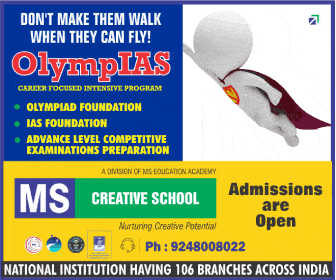[ad_1]
New Delhi: The Supreme Court on Tuesday upheld an order of the Gauhati High Court which had set aside the discharge of independent Assam MLA Akhil Gogoi in connection with a case related to anti-CAA protests and suspected Maoist links.
Allowing an appeal filed by the National Investigation Agency (NIA), the high court had remanded the matter back to the trial court to conduct a fresh hearing on the question of framing of charge against all the four accused persons including Gogoi.
A top court bench of justices V Ramasubramanian and Pankaj Mithal confirmed the high court order in “all respects”.

The top court, however, granted bail to Gogoi pending trial while noting that he has suffered incarceration for about 567 days.
“He has been out as a free man for the past more than 21 months. It is important to note that his freedom was secured not by an order of bail, but by an order of discharge passed by the special court, which has now been reversed by the high court.
“Nothing has been brought on record to show that during this period of 21 months, when the petitioner has been a free man, he has indulged in any unlawful activity,” it said.
On the contrary, the petitioner got elected to the legislative assembly in 2021 and he is now a sitting member of the assembly, the apex court said.
It said except in cases of preventive detention, the purpose of detaining a person in police/judicial custody, is either to facilitate fair and proper investigation or as a measure of penalty after conviction.
“In this case, (i) the investigation is over and (ii) the petitioner is not yet a convicted criminal. Therefore, we do not think that any purpose will be served in allowing the Special Court to remand him to custody and then enabling him to move an application for bail.
“In fact, the offences under the Indian Penal Code alleged against the petitioner are punishable only with imprisonment for a period of up to 3 years. It is only the offences alleged under the Unlawful Activities (Prevention) Act, which are punishable with larger terms of imprisonment,” it said.
The bench said if the offences under the IPC alone are taken into account, the petitioner has served, as an undertrial prisoner, more than half of the maximum period prescribed under the relevant provisions.
“Therefore, this is not a case where the petitioner should be allowed to be detained in custody, especially after having secured an order of discharge, rightly or wrongly,” it said.
The lawmaker, who has allegedly been vocal against the central government during the anti-CAA protests, had moved the top court against the February 9 order of the high court allowing the special NIA court in Assam to proceed with the framing of charges against him in one of the two cases.
Earlier, the high court had permitted the NIA to seek framing of charges in the special court against Gogoi and three of his associates in connection with anti-CAA protests and suspected Maoist links.
The high court’s order had come on an appeal of the NIA challenging the order of a special NIA court giving clean chit to the four.
The high court had asked the agency to go ahead with framing charges after reopening the case.
The MLA has come to the apex court against the order.
The other three accused were Dhaijya Konwar, Bittu Sonowal and Manash Konwar, all of whom got bail in the NIA case and were released from jail.
Gogoi was the only one whose bail was rejected by the court and he was released after spending 567 days in jail once Special NIA Judge Pranjal Das cleared him along with the three others of all charges.
The NIA is investigating two cases against Gogoi related to anti-CAA protests. In one of those, the special NIA court had granted him bail, which was upheld by the Gauhati High Court too in April 2021 after the probe agency challenged it.
The RTI activist continued to be in judicial custody as he was rejected bail in the second case related to anti-CAA violence and was being investigated by the NIA.
Later, the special NIA court on July 1, 2021 released Gogoi and his three associates for their alleged role in the violent anti-Citizenship (Amendment) Act stir in the state in December 2019 and observed there was nothing to indicate that the “talk of blockade” threatened the country’s economic security or was “a terrorist act”.
The NIA then moved the Gauhati High Court appealing it to allow the agency to frame charges under various sections, including sedition, of the IPC and the Unlawful Activities (Prevention) Act, 1967.
[ad_2]
#AntiCAA #stir #refuses #discharge #Assam #MLA #Akhil #Gogoi #NIA #case
( With inputs from www.siasat.com )



